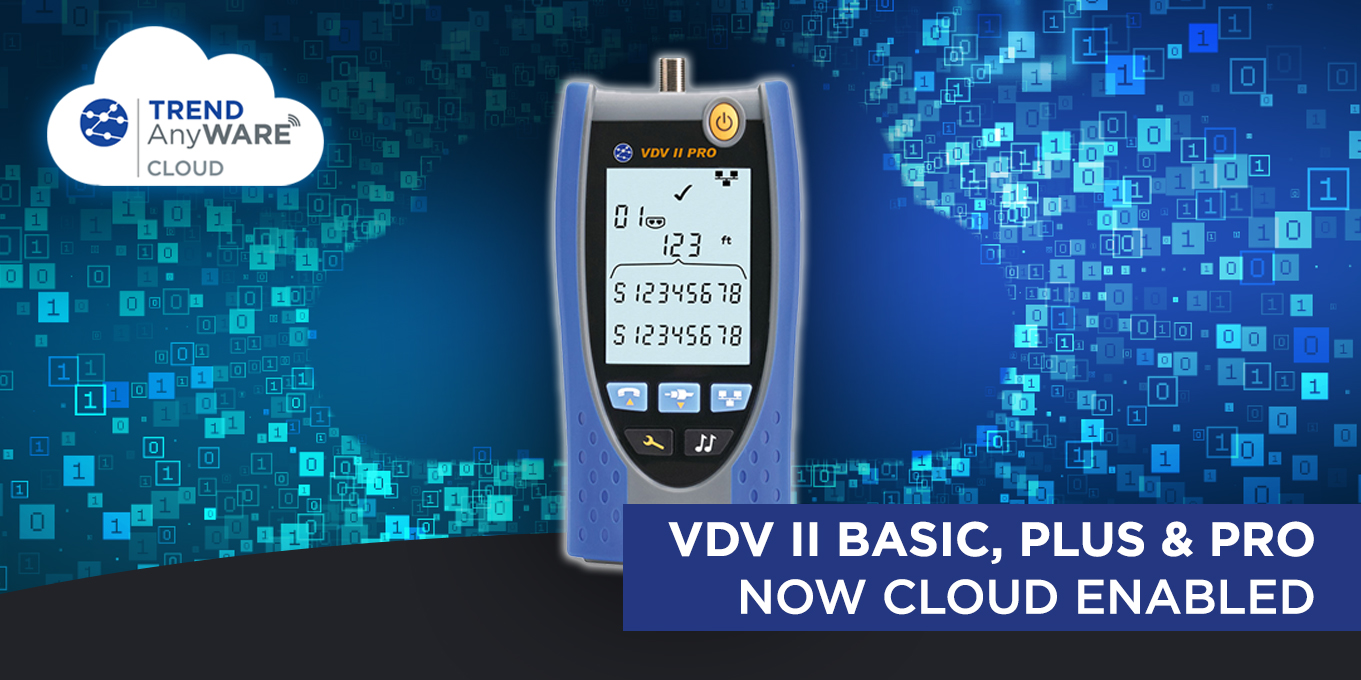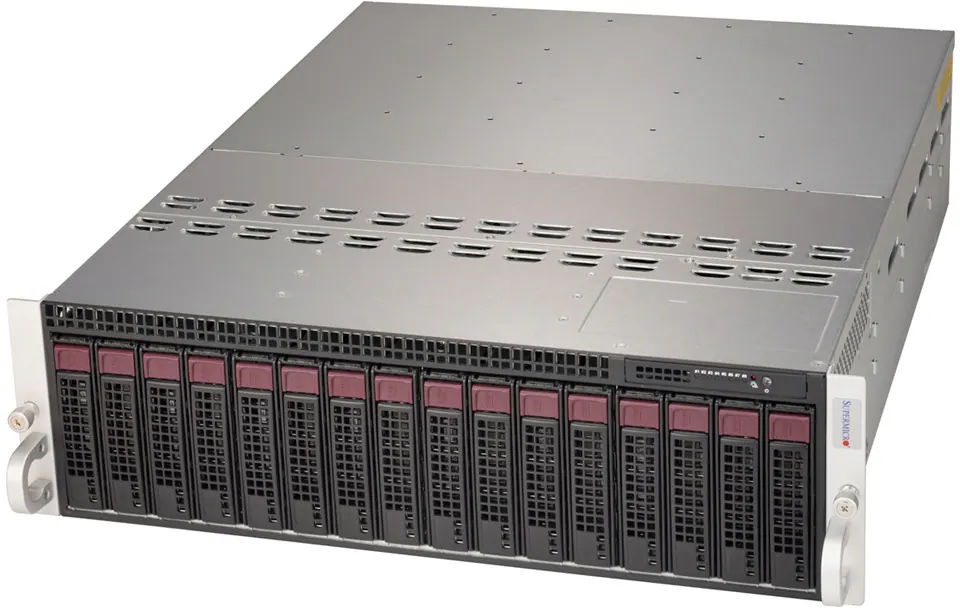Cloud
Cloud
Cooling
Data Centres
Infrastructure
Forestry & Land Scotland embrace cloud technology
Nutanix has announced that Forestry & Land Scotland (FLS) has upgraded its data centre infrastructure to a hyperconverged infrastructure (HCI), selecting the Nutanix Cloud Platform to support a workload of 300 virtual machines. FLS opted for Nutanix Cloud Clusters (NC2) on Microsoft Azure. With Nutanix NC2, it has been able to migrate the whole data centre to Azure without the time, effort and expense of re-engineering applications for native deployment.
Founded in 2018 as part of the Scottish devolution process, FLS manages over 1.5 million acres of national forests and land. To meet the short term IT needs of a newly devolved Scottish government agency, at the same time, supporting its move to the public cloud in line with a cloud-first government policy, it was required to rapidly revamp its legacy on-premises data centre.
FLS was already using Microsoft Azure to provide for disaster recovery of its on-premise data centre, so naturally, the organisation first looked at re-engineering for native operation of its applications on that platform. It soon realised that NC2 for Azure would be a better, quicker and more cost-effective approach, enabling it to stretch its existing environment seamlessly into the cloud and migrate workflows at its own pace, without having to transform or re-engineer the code in any way.
The migration also offered immediate benefits in terms of both performance and on-demand scalability. It resulted in a significantly smaller data centre footprint, in terms of both physical space and power and cooling requirements.
As with the original data centre project, Mahlitz, Nutanix was able to help by arranging a proof of concept trial of Nutanix NC2 on Microsoft Azure involving actual FLS production workloads.
Isha Jain - 11 July 2023
Cloud
Events
Internet
Networking
News
Cloud Industry Forum partners with Disruptive Live
The Cloud Industry Forum (CIF) has announced a new media partnership with Disruptive Live. This collaboration marks a significant step change in the delivery of high quality and dynamic content to cloud industry professionals in the UK and globally.
David Terrar, CEO, CIF, comments, “This strategic media partnership is another demonstrable step on our journey towards revolutionising what we deliver to our members and the broader cloud industry. It sets the stage for innovation, collaboration and knowledge sharing, and we are excited about the opportunities it brings. We collectively look forward to setting new standards for media content creation and engagement, harnessing the impressive thought leaders within our membership.”
Highlights of the partnership include:
Launch of ‘Cloud Industry Forum presents TWF!’: A weekly, live streamed news and interview show. Lasting five minutes, the show will provide up-to-the-minute news on cloud computing, followed by a 10 minute interview featuring prominent industry thought leaders. This show promises to keep viewers informed and inspired by the latest trends and insights.
A mixed reality virtual set: Designed to provide an immersive and visually engaging experience for live streamed programmes and individual events, it brings the benefits of virtual participation to a global audience. Members and attendees can expect enhanced coverage of CIF events and gain access to exclusive expert interviews and valuable insights.
Creation of new in-studio events and glass board sessions: Viewers can experience interactive discussions and collaborative sessions covering the latest topics and innovations.
Social amplification and extended reach: CIF and its members will also gain access to CompareTheCloud and Disruptive Live's extensive social media channels, amplifying their reach to a wider audience and generating increased visibility.
The partnership will kick off with the first ‘Cloud Industry Forum presents TWF!’ airing on 17 July at 10am. The initial three week run will showcase three industry luminaries including Ian Jeffs, General Manager of the Lenovo ISG in the UK and Ireland and Director and Chair of CIF; Céline Schillinger, acclaimed author of ‘Dare To Unlead’; and Mark Osborn, AI and Data Partner Ecosystem Sales Leader, EMEA.
Isha Jain - 11 July 2023
Cloud
Data
News
Security
Six Degrees gains Microsoft Cloud Security
Six Degrees has announced that it has successfully renewed its Microsoft Azure Expert MSP status and gained new Microsoft Cloud Security and Threat Protection specialisations.
These credentials demonstrate its commitment to holding deep technical expertise, backed by a demonstrable track record and a strategic relationship with Microsoft. Combined, they allow the company to enable organisations to achieve more through secure, integrated cloud services.
This brings several benefits to customers:
Designations aligned to the Microsoft solution areas recognise its broad technical capabilities and demonstrated success delivering technology solutions.
Benefits aligned to its solutions partner designations include product benefits, go to market services, co-sell eligibility, skilling and sales enablement resources, making it easier for customers to buy Microsoft solutions.
Specialisations further validate deep technical expertise after the company attains a Solutions Partner designation, giving customers reassurance that it is well placed to maximise its Microsoft investments.
Simon Crawley-Trice, CEO, Six Degrees, says, “I am delighted to have renewed our status as an Azure Expert MSP program member and I look forward to enabling many more organisations to succeed through the intelligent application of Microsoft technology. This isn’t a time to rest on our laurels, though. At Six Degrees we never stand still when it comes to our partnerships, and we will work to attain further specialisations which align to our core capabilities across cloud, cyber security and connectivity.”
Eleri Gibbon, Director, Services Partners, Microsoft UK, says, “In today’s challenging operating landscape, organisations will benefit from integrated secure cloud solutions that enable them to achieve competitive differentiation while protecting their people and their customers. By embracing the Microsoft Azure stack throughout their secure cloud offerings, Six Degrees is well placed to deliver these solutions to benefit organisations throughout the UK.”
Isha Jain - 6 July 2023
Artificial Intelligence
Cloud
Data
News
Security
VMware unveils research on NHS data storage
VMware has unveiled a research sharing that the majority (87%) of UK consumers believe it is important that their NHS patient data is stored in the UK.
The study of more than 2,000 UK citizens has revealed that people still have cyber security concerns when it comes to where their personal and sensitive data is stored. Of those who stated it is important for their data to be stored in the UK, more than a third (39%) think that their data stored within the country’s national borders would ensure it complies with UK data privacy regulations. A fifth (22%) do not trust other countries to safeguard their data as well as the UK, and 21% think it will be less susceptible to foreign cyber threats or access foreign entities.
Despite this, the research shares a good level of trust in the NHS when it comes to storing and analysing patient data. For instance, 59% of respondents expressed confidence in the NHS's ability to safeguard their sensitive information. But when asked about where their data is stored, most UK public had doubts on their data residing outside of their national boundaries.
Businesses share the same attitude. 42% of business leaders are extremely concerned about their critical data being managed by US cloud providers, and 62% have expressed that their current clouds are not meeting their data sovereignty requirements, according to the latest IDC research.
Many NHS and social care providers today use non-national public clouds. This means that patient data is currently hosted in a provider currently deemed adequate by the UK, however, if this is a non-national provider, the data could be subject to external jurisdictional control.
“This consumer opinion matters as it echoes business sentiment. These findings demonstrate the increasing importance of data integrity and sovereignty in helping the NHS, among other highly regulated industries, realise and unlock the true value of their sensitive and critical data," says Guy Bartram, Cloud Evangelist EMEA, VMware. “By embracing cloud sovereignty, the NHS can build public trust and assertively maintain governance, fortify data protection and help unlock the true value of critical and sensitive patient data in delivering patient services.”
"While there are vast rewards to be harvested through applying AI to healthcare data, we have to remember that each data point relates to a patient, and every patient should trust that their privacy is maintained,” says Darren Adcock, Senior Product Manager, Redcentric. “By harnessing the power of AI and advanced technologies within a secure and sovereign cloud framework, the NHS ensures that groundbreaking advancements in healthcare never compromise patient privacy and trust. Sovereign clouds serve as a pivotal enabler, allowing the NHS to drive progress responsibly, ethically, and with the utmost dedication to patient wellbeing.”
Sovereignty extends beyond where data is stored, but also how it is used by platforms such as AI, which analyses the data to feed algorithms. The general public surveyed hold diverse opinions regarding AI in healthcare, with 45% open to its use for improved services and 44% happy with the NHS using the technology to process their patient data, if it helped the NHS to process diagnostic tests faster. However, concerns exist, with 25% saying they are against the NHS using AI to process their patient data.
“Ongoing digital transformation and the increased use of emerging technologies such as AI, have spurred both excitement for true innovation to revolutionise our NHS, but also a new urgency for how this boom in data will be securely managed and stored,” says Dr Will Venters, Associate Professor of Information Systems, London School of Economics. “With the increased use of multiple clouds to create, store and distribute apps, which the NHS needs, relies on from frontline clinicians through to optimising operations, it is essential to patient trust that the NHS protects sensitive patient data, and this can be achieved by protecting it with sovereign clouds. AI has created new data opportunities so it is critical the NHS can make better use of its data, to build a resilient and patient-centric healthcare system that the UK needs.”
Isha Jain - 6 July 2023
Cloud
Cloud Computing & Storage
Data
Networking
InterCloud offers Oracle EU Sovereign Cloud availability
InterCloud has announced that it is adding connectivity to Oracle EU Sovereign Cloud in Madrid and Frankfurt, as it responds to the increasing demand for customers with EU operations to gain greater control over where their data and workloads are stored. These two new Points of Presence for the company represent an important step, given customers are battling to establish control against a constantly evolving regulatory landscape.
This comes as part of its strategic partnership with Oracle and status as a FastConnect partner since 2018, and follows the official announcement of Oracle EU Sovereign Cloud in June. As InterCloud is Europe’s SDCI provider, customers connecting to Oracle EU Sovereign Cloud will have access to unrivalled cloud connectivity capabilities, flexibility and regulatory expertise, helping them navigate the complexity of modern cloud environments and multi-cloud arrangements, while embracing new technologies.
Coupled with its position to be able to configure and manage end-to-end connectivity, the move ensures that the company continues to support enterprises in overcoming specific challenges across a wide range of industries and markets.
Oracle EU Sovereign Cloud offers additional advantages to customers compared to the commercial public cloud. The same applications and workloads can run in it as in the public cloud, but additional features ensure meeting EU data privacy requirements, while maintaining both physical and logical isolation from non-EU cloud regions.
Mourad Elmalki, CISO at InterCloud, says, “Privacy, security and control over where data is located are some of the most significant concerns for businesses and governments when it comes to adopting cloud technology. These concerns are particularly pressing given the growing prevalence of multi-cloud arrangements.
“One of the key features of the InterCloud platform is that it enables organisations to choose where their data will be transiting, and can apply encryption if necessary. This means organisations can ensure data remains within specific geographic frameworks depending on individual needs. Additionally, the InterCloud solution is designed with robust security measures in place to protect data from unauthorised access or breaches.
“We’re glad to be providing Oracle EU Sovereign Cloud availability as part of the InterCloud offering, and believe it will be important in helping grow our business further in the future.”
Isha Jain - 4 July 2023
Cloud
Colocation
Data
Colt launches multicast data in the cloud for capital markets
Colt Technology Services has announced the global availability of Colt Market Data in the Cloud with Amazon Web Services (AWS). The service solves a complex challenge for exchanges, prime brokers, trading firms, market data vendors and technology providers - by hosting and distributing multicast data in the cloud without the need for conversion software.
Now capital markets can experience the benefits of cloud, without being held back by cloud service providers’ inability to support critical applications. The launch follows a successful Proof of Concept announced by Colt and AWS in October 2022, which saw the companies build virtual distribution Points of Presence (PoPs) in the AWS Cloud.
Colt provides market data feeds for equities, derivatives, commodities and FX from more than 80 exchanges and liquidity venues worldwide. Securely sending this market data to multiple parties simultaneously is a key requirement for financial exchanges, but getting this data to clients’ cloud environments is complex. Existing solutions typically require conversion software to change data from multicast to unicast, adding cost and complexity as organisations rewrite and retest applications. As more and more capital market firms migrate to the cloud, the problem becomes widespread. Colt Market Data in the Cloud solves this, enabling organisations to securely host and distribute raw multicast data directly to their customers’ cloud environments in its original format, ensuring seamless integration with applications, facilitating faster times to market and improving the client experience.
At the same time, organisations benefit from end-to-end market data monitoring: the company monitors data at the source, within the exchange colocation; in transit, as it moves through the network; and within the virtual Point of Presence.
The launch supports the financial market’s transition to on-demand services and automation of real-time raw data and trading applications.
Isha Jain - 30 June 2023
Cloud
Gcore launches new AI cloud cluster in the UK
Gcore has announced the opening of its new AI cloud cluster in Newport, Wales. Built with Graphcore’s innovative IPUs, it provides access to enterprise-scale IT resources, democratising opportunities for AI development across the UK and Europe.
The opening of the new cluster marks the third point of presence (PoP) for the company’s AI cloud, which already has sites in the Netherlands and Luxembourg. The location was a strategic decision based on three key factors: the UK government’s commitment to advancing and integrating AI technologies; the high internet penetration rates in the country; and its position as one of the largest digital economies in the world.
“The opening of Gcore’s AI cloud cluster in Newport, in partnership with Graphcore, is an important step towards building one of the first European AI infrastructure. This move will enable businesses of all sizes to integrate innovations and easily access cutting-edge AI technology,” comments Seva Vayner, Director of Edge Cloud Stream at Gcore.
This also represents an essential milestone for businesses looking to integrate AI innovations quickly and conveniently. The Infrastructure-as-a-Service (IaaS) model provides access to its specialised AI hardware. On a pay-per-minute basis, companies can now tap into hardware resources facilitated by processors offering superior price and performance compared to GPUs for a wide variety of AI applications, to accelerate their AI initiatives and developments.
Isha Jain - 28 June 2023
Artificial Intelligence
Cloud
Data
Snowflake and NVIDIA to help businesses build AI applications
At the Snowflake Summit 2023, Snowflake announced that it is partnering to provide businesses of all sizes with an accelerated path to create customised generative AI applications using its own proprietary data, all securely within the Snowflake Data Cloud.
With the NVIDIA NeMo platform for developing large language models (LLMs) and NVIDIA GPU-accelerated computing it will enable enterprises to use data in their accounts to make custom LLMs for advanced generative AI services, including chatbots, search and summarisation. The ability to customise LLMs without moving data enables proprietary information to remain fully secured and governed within the Snowflake platform. “Data is essential to creating generative AI applications that understand the complex operations and unique voice of every company,” says Jensen Huang, Founder and CEO, NVIDIA. “Together, NVIDIA and Snowflake will create an AI factory that helps enterprises turn its own valuable data into custom generative AI models to power ground-breaking new applications, right from the cloud platform that they use to run their businesses.”
The collaboration represents a new opportunity for enterprises. It will enable utilisation of its proprietary data — which can range from hundreds of terabytes to petabytes of raw and curated business information — to create and fine-tune custom LLMs that power business-specific applications and services.By integrating AI technology, customers can quickly and easily build, deploy and manage customised applications that bring its power to all parts of its business across a variety of use cases.
“More enterprises than we expected are training or at least fine-tuning their own AI models, as they increasingly appreciates the value of their own data assets,” says Alexander Harrowell, Principal Analyst for Advanced Computing for AI at Technology Research Group, Omdia. “Similarly, enterprises are beginning to operate more diverse fleets of AI models for business-specific applications. Supporting them in this trend is one of the biggest open opportunities in the sector.”
Custom models for healthcare, retail, financial services and more
With over 8,000 customers worldwide, the Snowflake Data Cloud gives enterprises the ability to unify, integrate, analyse and share data across its organisations, as well as with customers, partners, suppliers and others. In addition, customers can build and share leading data applications at scale with the data cloud.The company’s unified platform offers industry-specific data clouds to help deliver innovative solutions across multiple verticals and lines of business.
The collaboration will further enable customers to transform these industries by bringing customised generative AI applications to different verticals with the data cloud. For example, a healthcare insurance model could answer complex questions about what procedures are covered under various plans. A financial services model could share details about specific lending opportunities available to retail and business customers based on a variety of circumstances.
Isha Jain - 27 June 2023
Cloud
Data
Wireless Networking
TREND Networks improves its VDV II cable verifier range
TREND Networks has announced that the VDV II basic, plus, and pro copper cable verifiers will now be Bluetooth-enabled to support enhanced test reporting with the company’s AnyWARE Cloud app and test management system. The new cloud connected verifiers will enable users to quickly, easily, and accurately create and manage test reports, making them ideal for technicians working in voice, data, and video applications.
“All too often, industry-leading test management capabilities are only available for users of the most complex cable testers,” explains Dan Barrera, Director of Product Innovation, TREND Networks. “However, with the latest update to VDV II, we are bringing advanced reporting benefits to an affordable, entry level wire mapper, a type of tester that the majority of installers or technicians need to have in their bag.”
Dan continues, “By covering users from basic to pro, we are ensuring that all users can experience the same time and cost savings, alongside the dependability and accuracy they expect from TREND Networks.”
The new models connect reliably to its AnyWARE Cloud app using Bluetooth, storing the test results on the user’s phone in real time. It is as simple as creating a job folder in the app, connecting the tester to a cable, and then sending the test results. Once these are in the app, users can upload to transfer the results to the online system in seconds. There, the test results can be organised, and professional PDF reports can be exported.
This seamless data transfer also benefits project managers. With access to a wider range of test results from their co-workers in the field, in a single web-based test management system, they can now standardise their workflow and improve efficiency. The app already supports testers from TREND Networks, including PoE Pro, LanTEK III/IV/IV-S cable certifiers, and SignalTEK 10G bandwidth tester.
The latest version also uses AnyWARE EXPLORER, offering project managers a simple navigation user interface, like those used on desktop operating systems. This makes it easier to find the specific job needed, sort results, or build out subfolders to organise results by building, floor, room, rack, or panel.
The new VDV II Series retains all the dependable functionality of previous models, which helps users document proper operation and eliminate guesswork when installing, maintaining, and troubleshooting data, voice, and video cabling.
“Wire mapping and cable verification is commonplace, so we already had a great solution for that in the VDV II series,” says Dan. “However, this game-changing update enables a large proportion of installers and technicians to depend on us to change the way they work for the better, maximising efficiencies, even on the simplest jobs.”
Isha Jain - 27 June 2023
Cloud
Data
Data Centres
Virtualisation
Supermicro MicroCloud uses AMD Ryzen for server usage
Supermicro has introduced a new server that gives IT and data centre owners a high-performance and scalable solution to meet the needs for E-commerce, cloud gaming, code development, content creation, and virtual private servers.
The new systems are designed to use AMD Ryzen 7000 Series processors optimised for server usage, based on the latest Zen 4 core architecture, which has a maximum boost speed of up to 5.7GHz, including PCIe 5.0 support, DDR5-5200MHz, and up to 16 cores or 32 threads per CPU. The Supermicro MicroCloud is designed to use the latest system technology for a wide range of applications, including web hosting, cloud gaming, and virtual desktop applications.
“We are expanding our application optimised server product lines to include the latest AMD Ryzen 7000 Series processors,” says Michael McNerney, VP of Marketing and Security, Supermicro. “These new servers from Supermicro will give IT administrators a compact and high-performance option in order to offer more services with lower latencies to their internal or external customers. By working closely with AMD to optimise the Ryzen 7000 Series firmware for server usage, we can bring a range of solutions with new technologies with PCIe 5.0, DDR5 memory, and high clock rates to market faster, which will allow organisations to reduce costs and offer advanced solutions to their clients.”
The Supermicro Microcloud new blade offering, AS-3015MR-H8TNR server, contains a single optimised AMD Ryzen 7000 Series processor, up to 128GB of DDR5 memory, and a TDP of up to 170W. The 3U enclosure contains eight blades, with each blade containing up to two front-accessible NVMe U.2, SAS, or SATA3 drives. It shares cooling and redundant power supplies across the eight blades for a more efficient and uninterrupted operation. IT departments can quickly set up dedicated hosting, a multi-instance environment for workloads such as web hosting, cloud gaming, and remote and virtual desktops, through easy accessibility of the physical nodes and the rear I/O with a flexible remote management interface, including dedicated IPMI port for the eight nodes.
“AMD works closely with Supermicro to bring innovative products to market that enable customers to reduce costs while increasing performance for a wide range of workloads. The Supermicro MicroCloud offers customers a compact, low latency solution that can meet the demands of many data centre operators seeking a successful digital transformation,” says John Morris, Corporate Vice President, Enterprise and HPC Business Group, AMD. “The AMD Ryzen 7000 Series processors set a new standard for performance in a compact form factor for cloud and dedicated hosting environments.”
Isha Jain - 26 June 2023

Head office & Accounts:
Suite 14, 6-8 Revenge Road, Lordswood
Kent ME5 8UD
T: +44 (0)1634 673163
F: +44 (0)1634 673173








